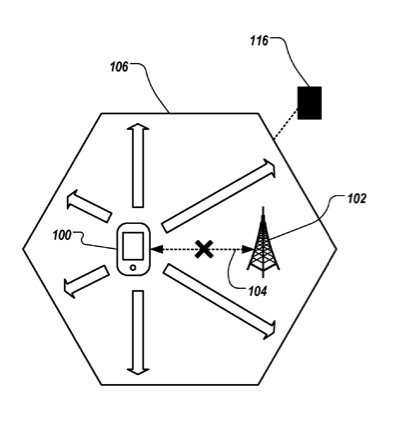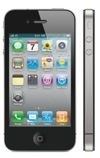An Apple patent (number 20120046040) for a location-based profile has appeared at the U.S. Patent & Trademark Office. It relates generally to location-based data processing on a mobile device.
Methods, program products, and systems implementing location-based profiles are disclosed. A location-determination subsystem can determine a location of a mobile device. A monitoring subsystem of the mobile device can be configured, using a profile (e.g., default configuration profile), to monitor states of a wireless connection between the mobile device and a communications network. When the monitoring subsystem detects an interruption of the wireless connection, a virtual geofence can be constructed around the location of the mobile device when the interruption occurred.
The geofence can indicate a boundary of an enclosed geographic area. The geofence can be associated with a diagnostics profile for controlling the collection of diagnostic data the mobile device. The diagnostics profile can be dynamically retrieved from a server. When the mobile device enters the area enclosed by the geofence, the monitoring subsystem can be configured using the diagnostics profile in anticipation of an interruption of a voice or data connection. Information relating to the interruptions can be anonymously sent to a server for analysis.
This information can include but is not limited to: radio frequency data, call drops, handover failures, call-related metrics or any other information that can be used to diagnose problems with a wireless communication link. Shuvo Chatterjee is the inventor.
Here’s Apple’s background on the invention: “mobile device can include various subsystems and functions to wirelessly connect to other devices through a communications network. For example, a mobile device can include telephony subsystems and functions that permit voice communication between the mobile device and other devices located remotely. Additionally, the mobile device can include data communication subsystems and functions that permit the mobile device to transmit and receive data through the communications network.
“The communications network can include a wireless communications network. For example, a mobile device can be wirelessly connected to a cellular network or a wireless local area network (WLAN) through one or more cell towers or one or more wireless access points, respectively. The wireless connection may be subject to various interruptions. Data transmissions between the mobile device and other devices on the wireless communications network may fail. A call drop event due to the interruptions can occur, where voice communications between the mobile device and a remote device are cut off before the call participants finish their conversation.
“Anonymous data, including information on occurrences of the interruptions of the wireless connection can be gathered. The anonymous data can be useful to a manufacturer of the mobile device for improving design of the mobile device and an operator of the communications network for modifying topology of the network to minimize future interruptions.”



